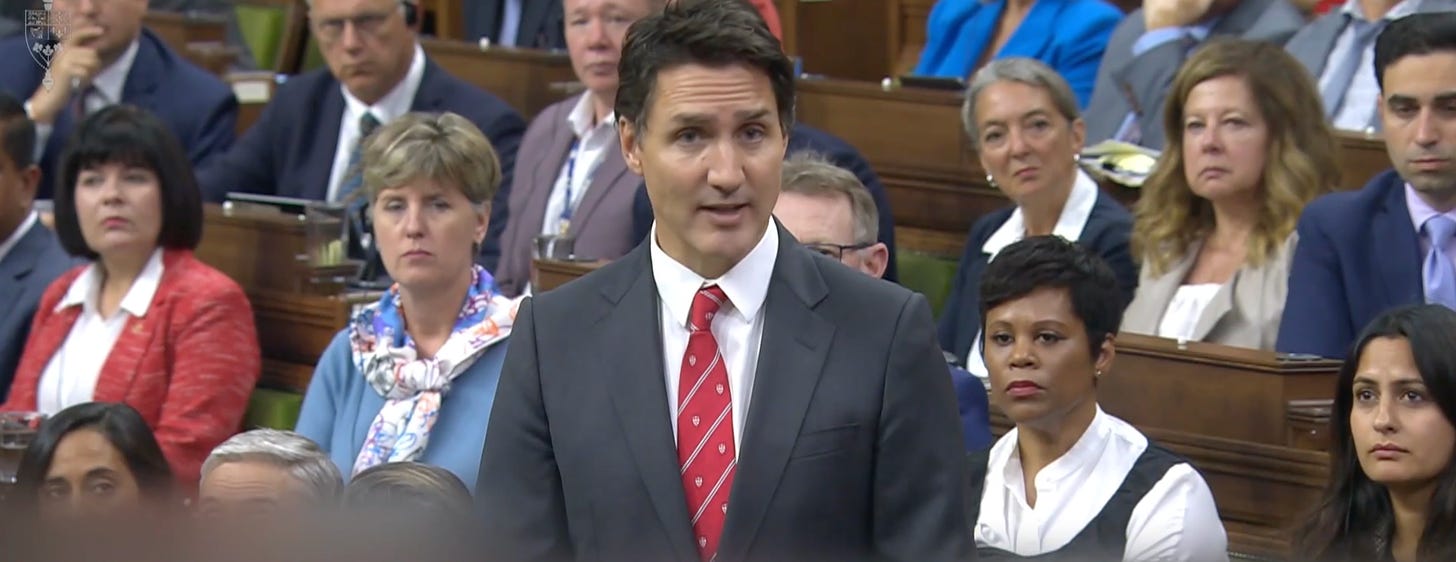Indian Consulate networks targeting Sikhs in Vancouver continued 'unabated' when Ottawa gutted CSIS probe in 2017: top secret record
NSICOP report says CSIS's threat reduction targeting Indian diplomat networks in Vancouver was halted and Global Affairs didn't raise case because of PMJT's upcoming trip to India

CSIS planned a major intervention in 2017 to shut down rapidly growing Indian intelligence networks in Vancouver that were monitoring and targeting the Sikh community, according to a confidential Canadian foreign interference review.
But Ottawa blocked CSIS’s operation due to “political sensitivity” and fears it would impact Prime Minister Justin Trudeau’s upcoming trip to India, the top secret June 2019 report says. And so, the Indian diplomat in Vancouver targeted by CSIS continued to run his networks “unabated.”
These allegations — from NSICOP’s “Canadian Eyes Only” 2019 draft report — shed new light on the bombshell dropped in Parliament yesterday by Trudeau, who accused India’s government of links to the targeted murder in June of a prominent Vancouver Sikh community leader, who was designated as a terrorist by New Delhi.
India’s government fiercely denies the allegations, and its officials have counter-charged that Trudeau’s government is interfering in India by coddling Sikh diaspora elements that include separatist militants, to benefit the Liberal Party’s electoral chances.
The Bureau’s exclusive analysis of the NSICOP document — which suggests Trudeau’s administration has frequently failed to act on CSIS warnings regarding Chinese and Indian diplomats interfering in diaspora communities and Canadian elections — raises serious questions about whether Canada’s growing crisis of hostile state activity is exacerbated by Ottawa’s foot-dragging on recommended national security reforms, such as a foreign agent registry.
The 2019 NSICOP report, provided to Trudeau by his bipartisan intelligence review body, details three case studies of interference from China, Russia and India, and scrutinizes Ottawa’s lax responses.
The Chinese case deals with warnings to Trudeau’s administration since 2015 on President Xi Jinping’s so-called “Fox Hunt” clandestine repatriation operations and interference targeting diaspora citizens.
Similarly, NSICOP says that around 2016, CSIS discovered “an increase in the volume” of Indian intelligence activity in Canada, targeting the Indo-Canadian diaspora and government institutions.
CSIS alleged two specific Indian diplomats were responsible: an intelligence liaison named Parag Jain posted in Ottawa, and “Amar Jit Singh, the Consul at the Indian Consulate in Vancouver, who was also carrying out undeclared intelligence activities.”
Singh’s alleged clandestine activities in Vancouver included “recruiting sources and agents to infiltrate, monitor and co-opt Sikh diaspora communities,” as well as “interfering and influencing voting in favour of those that were assessed as pro-India candidates.”
Singh and Jain were also allegedly “facilitating visas for Indo-Canadian politicians and their friends,” while manipulating “India’s ‘black list’ of people banned from travelling to India.”
Singh, the Indian diplomat in Vancouver, also allegedly used a community proxy to donate “cash to a federal party candidate,” according to CSIS.
And so, after receiving a “windfall” of intelligence on Indian networks in September 2016, CSIS planned to use new “threat reduction” powers implemented by the Harper Government in early 2015, to target and “roll up” India’s clandestine cells in Canada.
“The goal of the Threat Reduction Measure was to disrupt the network and reduce the volume and scope of activities carried out by Indian intelligence in Canada,” the NSICOP report says. “CSIS expected that Mr. Jain and Mr. Singh’s networks would be disrupted, and that they would no longer be able to recruit new individuals.”




